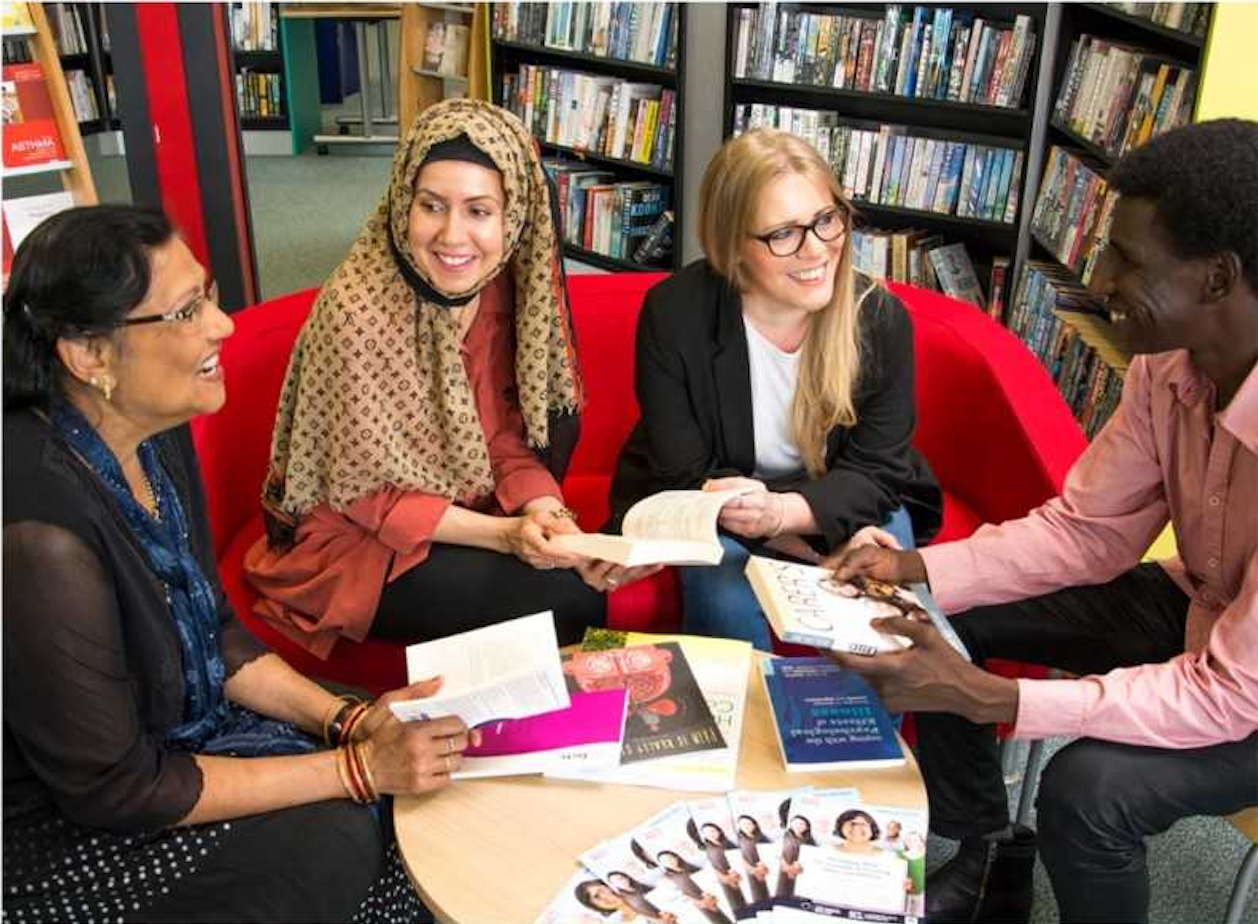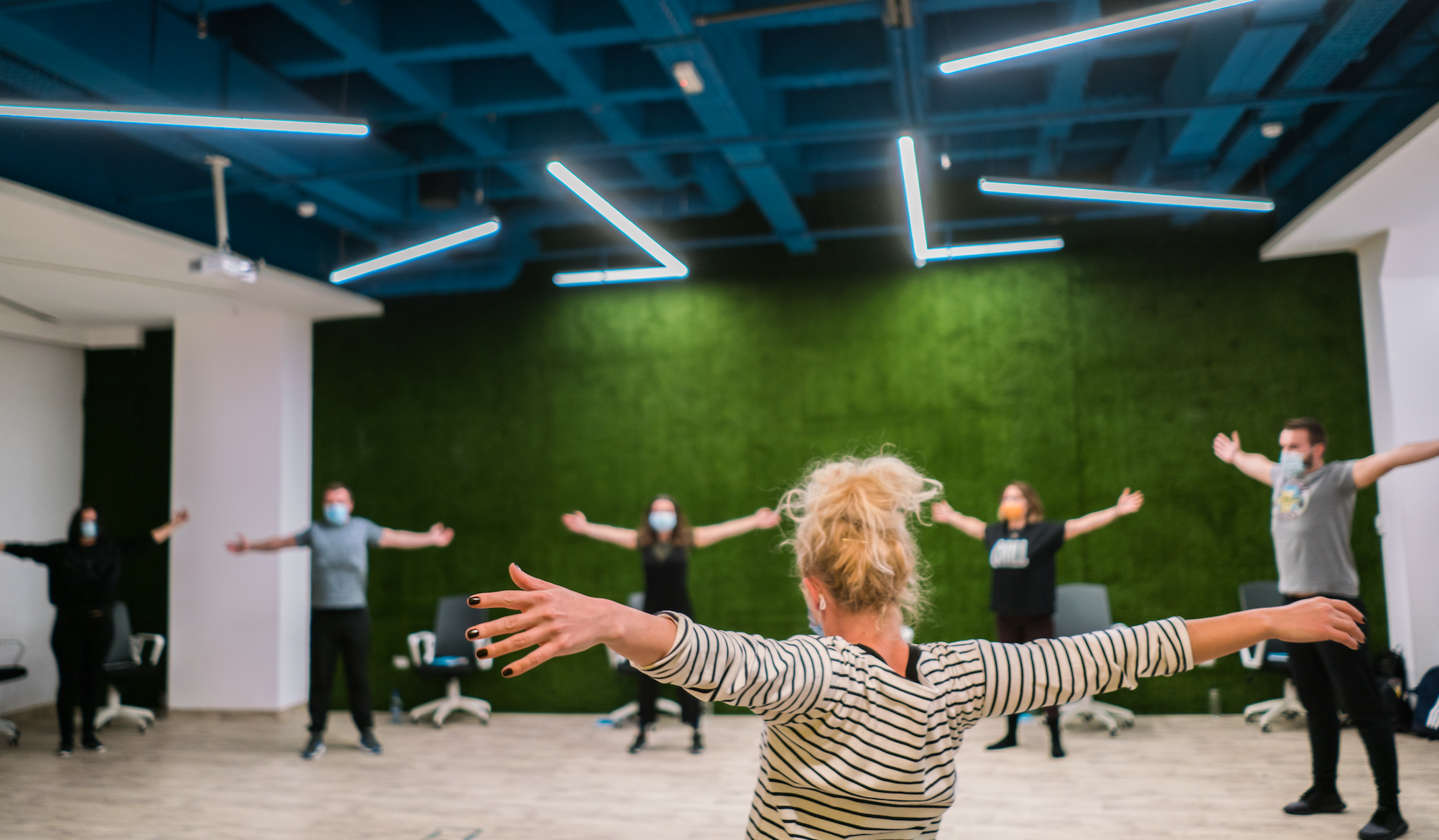Today, March 9 2023, we are spending some time recognising people supporting the improvements of health and well-being through social prescribing.
Social Prescribing Day 2023The health and well-being of people has gained international attention to an extend we haven't seen for long.
According to the National Academy for Social Prescribing in the United Kingdom (UK), it is estimated that almost a fifth of the appointment time at a General Practitioner is spent on non-medical problems - including loneliness, relationship issues, or stress related to money or housing.
The fact that with an ageing society and rising rates of loneliness, we need to address the social factors that influence people’s health.
Social Prescribing Day is an annual celebration of social prescribing. Since 2019, people have taken part of this celebration across the world, highlighting the impact of social prescribing on people and communities.
"Together, we want to raise awareness of what social prescribing is, how it works, and how it changes lives."
- National Academy for Social Prescribing
The mission of the National Academy of Social Prescribing (UK) is: "To help people live the best life they can through social prescribing"
National Academy of Social Prescribing
For Swedish teenage girls battling mental issues such as stress and anxiety, dancing has proved an emotional and somatic sanctuary, being part of a culture-based social prescribing activity.
While the project is known by two different names, “Dance for Health” and “Dancing without Requirements”, the purpose is unambiguous: Provide these young women afflicted by disorders of either body or mind with a joyous and liberating alternative to psychotherapy and medication.
We have reached out to Julie Ward - a poet, theatre maker, and a British politician who served as a Member of the European Parliament for the North West England region for the Labour Party from 2014 to 2020.
Jack Drum ArtsIn 2010, during the early days of culture-based social prescribing, Julie Ward was active in the social enterprise, Jack Drum Arts, organising activities for people struggling with life.
Jack Drum Arts is a community-based arts organisation, which is based in County Durham in the northeast of England, in a place of high deprivation.
In 2011, Jack Drum Arts won a consortium bid (with local organisations - Pioneering Care Partnership and Leisureworks) to run a three-year pilot to test the culture-based social prescribing model: Arts on Prescription. Julie and her colleagues were aware of the stigma around prescriptions, going to the doctors, and mental health issues.
"By calling this project something very beautiful; ‘Colours’, ‘Life’ – these are positive things – we felt that it would be easier for us to get people to sign up for the programme. We reached out."
- Julie Ward
And this was the start of “Color Your Life”.
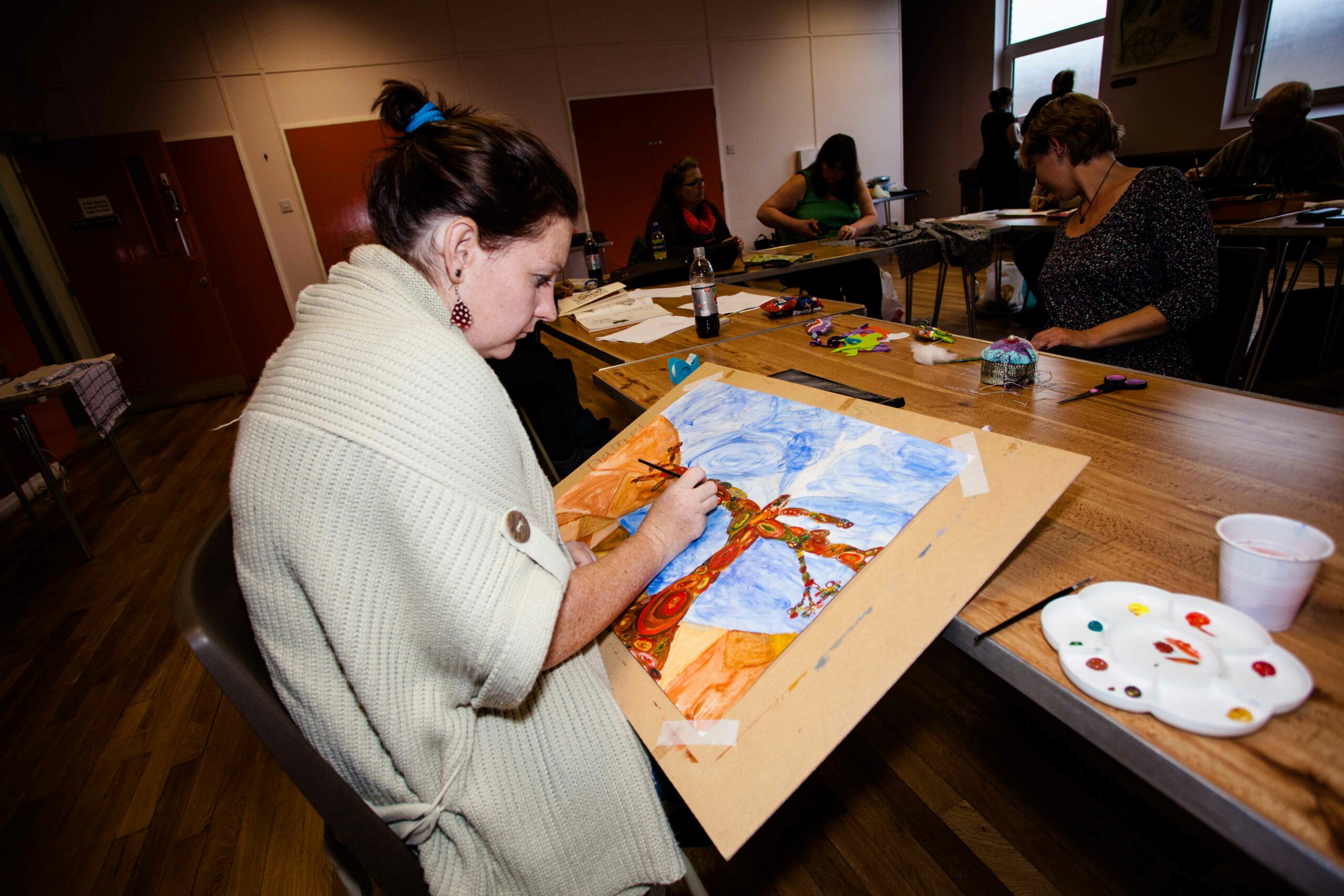

"At the beginning there were sport on prescription along with arts and culture. Those two things were modelling the beginning of culture-based social prescribing. Also, there was an understanding that if you are in nature, there is a healing process. There is a kind of sanctuary, a space for you to unwind, for you to rediscover things, for you to reflect a little bit. Organizations who were working with green spaces, began to be involved in the Social Prescribing Model, calling it Green Prescribing. At the same time, the Blue Prescribing developed and is about water, run by organisations managing water facilities."
"What I think is really interesting is, what happens when you begin to mix those things up, for example, my organisation ran some activities called ‘Walking, Talking, Photography’, which took place in the natural environment. People would be walking, they would be talking and they would be with a professional photographer taking photographs. They're learning about photographs, they're having conversations, they're out in the fresh air, in the open space in a guided activity. So, this is an example of bringing together if you like, the 'Arts on Prescription' along with the Green Prescribing."
- Julie Ward
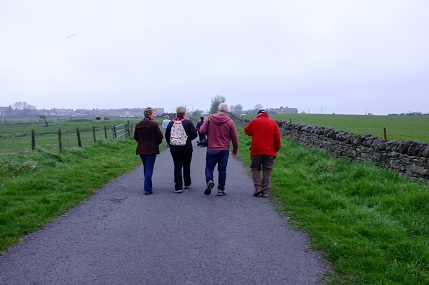
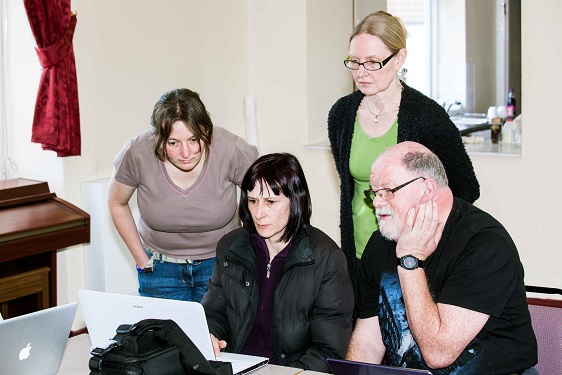
Julie, what would you like to speak out today on Social Prescribing Day?
"I think that policy makers need to stop thinking about things in silos.
This is a really important issue for people involved in and working in arts and culture, particularly because during lockdown, during the pandemic, lots of people rediscovered the importance of culture, the importance of nature in their lives.
And yet, when the government sets budgets, the culture budget is usually the smallest, and in times of austerity, it is the first budget to be cut, and this is a very short term vision because what does it do?
It immediately takes away and puts under pressure these human social services that people are relying on in order not to go to the doctor."
"So it's about influencing the policymakers and celebrating the importance of being together in safe spaces, doing activities that make us feel good about ourselves.
People are already benefiting. We don't need to persuade them. They're persuaded, right. They have the experience and maybe it saved their life, hey."
- Julie Ward, poet, theatre maker and politician
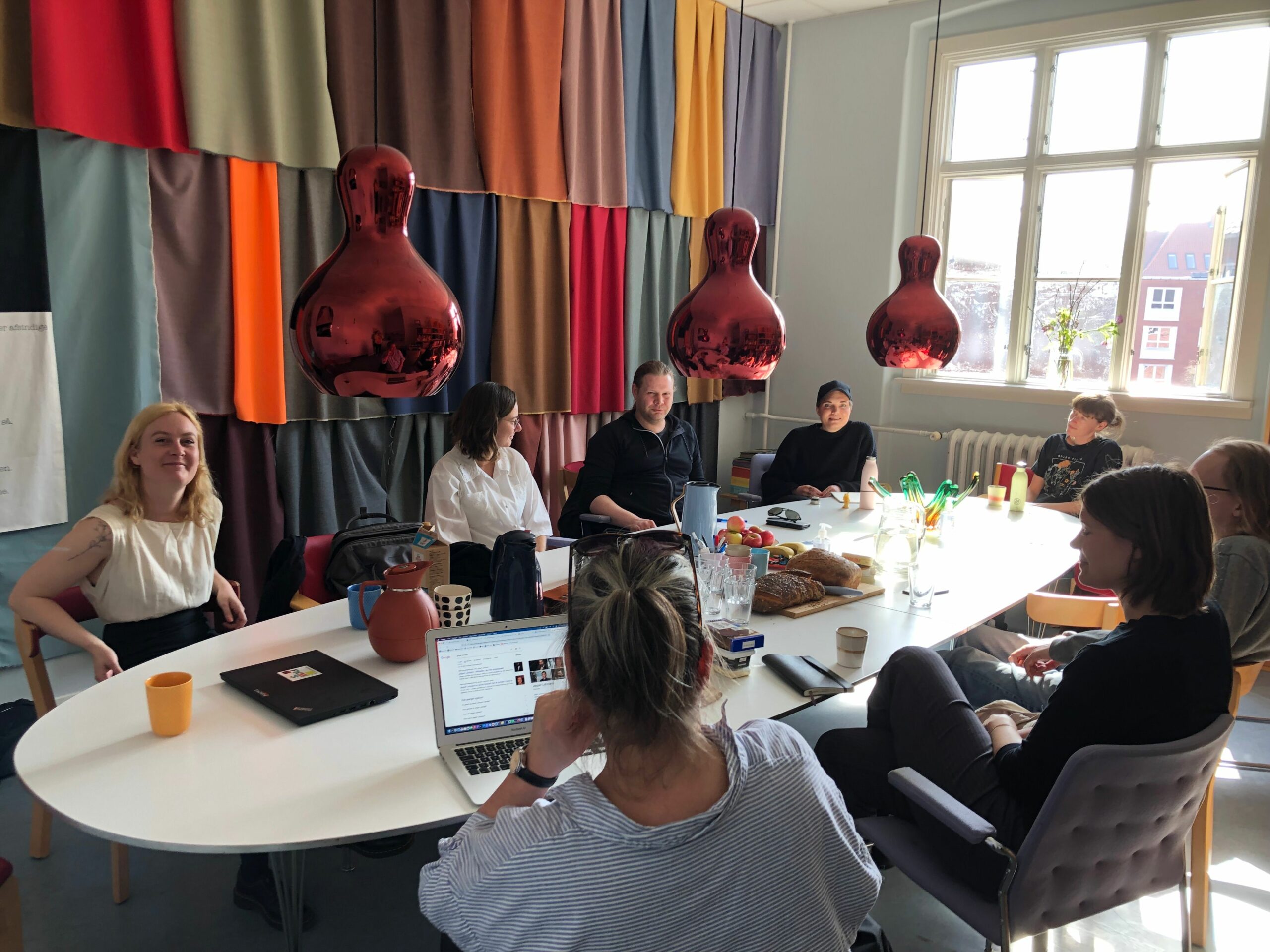
The intervention REWRITALIZE is structured as participatory creative writing groups aimed at people with lived experience with mental illness.
It combines principles from psychotherapy with the creative and playful exploration from an art workshop.
For the organisors (using the model for culture-based social prescribing) it was an important cornerstone for this activity, that it was not offered as therapy, but as a possibility to be creative. This was a space where the literary writings as aesthetic constructs were centre of attention.
In June 2023, CultureForHealth provides practical guidance for culture-based social prescribing with the launch of "Culture for Health and Well-being Compendium. A Guide for Practitioners".
Culture for Health and Well-being Compendium. A Guide for PractitionersThe CultureForHealth report shows that there is a clear need for increased cooperation between the health, cultural and social sectors. This is primarily due to the following two reasons. Firstly, the current health paradigm is focused on disease treatment, rather than on health promotion. Secondly, biomedical interventions rarely take into account the social determinants of health. Cultural interventions are particularly appropriate to
improving health and well-being as they are capable of supporting these two important but difficult shifts at the same time.
The purpose of the CultureForHealth Compendium is to transform the recognition of this potential into effective action.
In the CultureForHealth Compendium, you can
- Find out about how cultural interventions can support positive health and well-being outcomes
- Get inspired by the models of the CultureForHealth pilot projects (and more)
- Draw on guidance to equip your organisation for the journey towards a culture-based project for health
- Dive deeper into the topic through recommendations for further reading
22 June 2023 you can join a free, online webinar about the CultureForHealth Compendium. You can registre here
In May 2022, WHO launched a toolkit on how to implement social prescribing.
WHO Toolkit for Social PrescribingThis is one of the ways of utilising culture-based social prescribing as a pathway to improve health and well-being.
Use the toolkit when implementing culture-based social prescribing at your community level. It outlines the steps required to introduce a culture-based social prescribing scheme to the local context in your community.
Policy-makers and health and social welfare authorities may also find this useful for scaling up culture-based social prescribing.
You can also read the "CultureForHealth Report. Culture’s contribution to health and well-being. A report on evidence and policy recommendations for Europe."
The CultureForHealth ReportThe CultureForHealth Report presents a collection of existing evidence on the positive effect of arts and cultural activities on health and well-being.
This means the report is not limited to a few research questions but seeks to provide a clear indication of the volume of existing literature, the key concepts, focus points and the types of studies that exist.
You can search for health and well-being projects within culture and the arts using the CultureForHealth Map & Database showing cases from European Member States countries.
Or get inspired searching for initiatives in our Inspiration search engine.
Looking for more inspiration?

